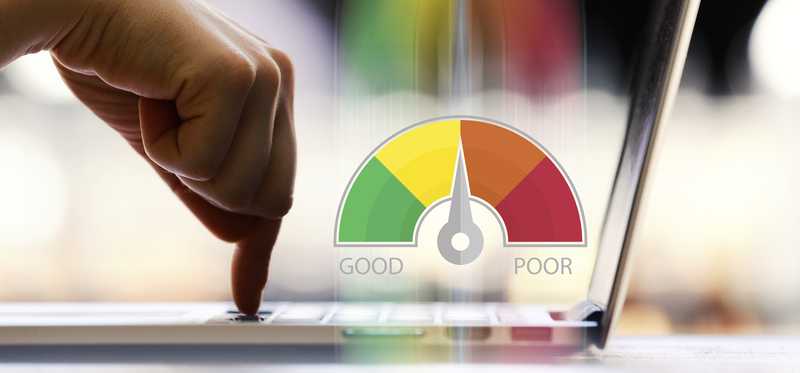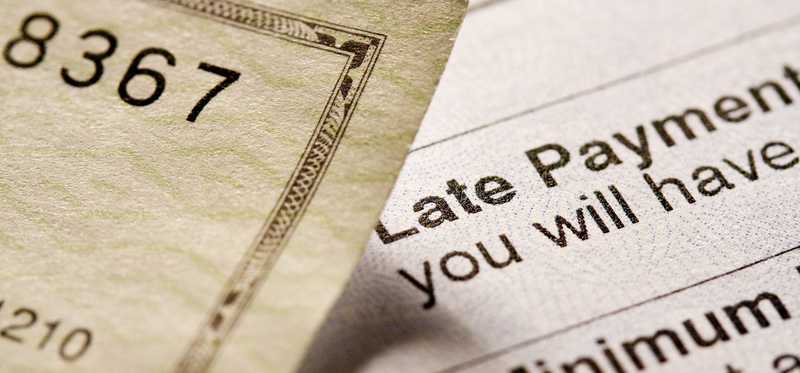15 Ways to Improve Your Financial Health Right Now

15 Ways to Improve Your Financial Health Right Now
The decisions you make now could permanently impact your finances
Consumers and investors across all income levels right now are looking for ways to save money and feel more confident about their financial future. If you're searching for some no-brainer ways to whip your finances into better shape, you've come to the right place.
Let's take a look at 15 ways to improve your financial health -- that you can start doing right now.
5 Stocks Under $49
Presented by Motley Fool Stock Advisor
We hear it over and over from investors, “I wish I had bought Amazon or Netflix when they were first recommended by The Motley Fool. I’d be sitting on a gold mine!" It's true, but we think these 5 other stocks are screaming buys. And you can buy them now for less than $49 a share! Click here to learn how you can grab a copy of “5 Growth Stocks Under $49” for FREE for a limited time only.
Previous
Next

1. Reduce your outlay where you can
Whether it's making your coffee at home more often, picking up food from a restaurant instead of delivery, or scaling back on a few of your subscription services, the little costs may not seem like they matter, but they add up. In fact, you might find that even small changes and adjustments to your daily lifestyle could result in you having an extra few hundred dollars at the end of each month.
Previous
Next

2. Even small steps toward paying down debt can make a huge difference
If you want to save more, invest more, or a combination of both, significant debt (especially high-interest debt) is going to get in the way of that. If debt is weighing you down, don't lose heart -- make a plan.
Focus on "bad" forms of debt first. For example, high-interest credit card debt. Make a plan to put a certain amount of money toward paying down your debt each month, even if that means scaling back on purchases you would otherwise make.
Previous
Next

3. Set a nonnegotiable amount of money to save each month
If you plan to set aside a certain amount of money each month, no matter what -- be it $100, $500, $1,000, or anywhere above or in between -- you can then format the rest of your budget around that savings target.
Previous
Next

4. Assess where you can and can't cut back
An important aspect of formulating a workable budget is to determine where you can and can't scale back your spending. For example, your mortgage or monthly rent is a nonnegotiable cost. When you know exactly where your money is going each month, you can also assess what will be left over to put toward miscellaneous expenses, discretionary purchases, or your rainy day fund, etc.
Previous
Next

5. Consider putting your skills to work to earn extra money
Feel like your current salary is stretched thin? Well, in the age of remote, hybrid, and flexible work, you might be surprised how even a few extra hours a week of work leveraging skills you already have could make a difference.
From freelance copywriting to part-time virtual assistant roles to completing tasks from gig apps, there are so many ways to make money that could enable you to make anywhere from a few hundred extra dollars to $1,000 or more on top of your regular salary each month.
5 Stocks Under $49
Presented by Motley Fool Stock Advisor
We hear it over and over from investors, “I wish I had bought Amazon or Netflix when they were first recommended by The Motley Fool. I’d be sitting on a gold mine!" It's true, but we think these 5 other stocks are screaming buys. And you can buy them now for less than $49 a share! Click here to learn how you can grab a copy of “5 Growth Stocks Under $49” for FREE for a limited time only.
Previous
Next

6. Avoid speculative investments
Investing should be part of your overall financial wellness plan, but it's key to discern between wise long-term investments and speculative buys that could adversely impact your financial health. Do your research before you invest in any company you want to buy (e.g., industry headwinds/tailwinds, financials, leadership), make sure it fits with the overall risk profile you've set for your portfolio, and only put your hard-earned money toward investments that you're confident holding onto for a minimum of three to five years.
Previous
Next

7. Regularly reassess your budget
Unexpected costs can and will arise. Once you make a budget, you may need to revisit it from time to time to see how your spending is shaping up, where you might be able to cut back, and what regular and recurring expenses have arisen that might affect your overall financial planning. For example, when you finish paying down a particular form of debt, you might have far more flexibility with your budget than you did before, enabling you to target a higher amount to save and invest.
Previous
Next

8. Plan your meals ahead
It might surprise you, but planning your meals ahead for the week can actually save you a lot of money. When you know what you're going to eat on a particular day, you're far less likely to find yourself without meal inspiration after a long and tiring day at work and end up ordering from a restaurant. Meal prepping in advance can also enable you to stretch your budget (and your food budget) further, because you can buy food items in bulk and prepare multiple meals from them that can last for the coming week.
ALSO READ: 10 Hacks to Save on Groceries, According to Reddit Users
Previous
Next

9. Curb online purchases
No one is saying you should stop shopping online altogether. After all, the convenience and ease of online shopping are what make the format so appealing to most consumers. At the same time, the ease of being able to purchase virtually anything your heart desires in just a few clicks can make it far easier to spend more money than you otherwise would if you were shopping in person.
If you find that you are prone to impulse purchases, try to shop online during the day (studies have shown that you're likely to spend more money when you shop online during the nighttime), and take a few days to ponder discretionary purchases before you hit the buy button.
Previous
Next

10. Find free activities for weekends and vacations
Whether you're wanting to find something fun to do with the family on the weekend or looking at vacation destinations, you would be amazed how many free and enjoyable activities are at your disposal if you take the time to look.
5 Stocks Under $49
Presented by Motley Fool Stock Advisor
We hear it over and over from investors, “I wish I had bought Amazon or Netflix when they were first recommended by The Motley Fool. I’d be sitting on a gold mine!" It's true, but we think these 5 other stocks are screaming buys. And you can buy them now for less than $49 a share! Click here to learn how you can grab a copy of “5 Growth Stocks Under $49” for FREE for a limited time only.
Previous
Next

11. Work on your credit score
While your credit score might seem arbitrary, it isn't. A variety of factors, including your payment history and your outstanding balance or balances owed, can all impact that score. And if you have a bad credit score, you might find it difficult to do everything from getting approved for an apartment you want to rent to taking out a loan for a home or other large purchase.
Curbing back spending so that you don't spend more than you can reasonably afford to pay each month is crucial. If you currently have outstanding credit card debt that you can't afford to pay back all at once, make a payment plan for yourself and set a target date by which you can realistically have that debt paid off.
Make sure you always pay at least the minimum balance owed on your credit card or cards each month, as failing to do so can skyrocket the amount of interest you will be forced to pay, which can also increase the duration it will take you to pay down that debt.
ALSO READ: This Is One of the Most Dangerous Credit Score Myths
Previous
Next

12. Consider zero-interest credit cards
When used responsibly, credit cards can be a fantastic tool. If you're considering applying for a new credit card, check out credit cards with zero-interest introductory periods that can save you money on purchases you make for anywhere from one to two years.
Previous
Next

13. Utilize credit card rewards and points to your advantage
From saving on travel to shopping at your favorite brands, using credit cards that give you points or cash back can help you capitalize on every purchase you make. For example, credit cards that give you cash back on purchases will often let you use those rewards to pay down your balance or even receive in the form of a check.
Previous
Next

14. Avoid late payments at all costs
Whether it's debt that you're working to pay down over a period of time, your phone bill, your rent, your car payment, your credit card bill, or otherwise, late payments for any of these could result in serious personal and financial ramifications. Fortunately, there are simple solutions here. For example, setting up automatic bill pay and/or reminders for your regular and recurring expenses each month can help you avoid running the risk of missing one.
Previous
Next

15. Shop around
Whether it's to buy car insurance, health insurance, groceries, or gas, taking the time to price compare could pay off big and help you enjoy hundreds of dollars' worth of savings each month.
5 Stocks Under $49
Presented by Motley Fool Stock Advisor
We hear it over and over from investors, “I wish I had bought Amazon or Netflix when they were first recommended by The Motley Fool. I’d be sitting on a gold mine!" It's true, but we think these 5 other stocks are screaming buys. And you can buy them now for less than $49 a share! Click here to learn how you can grab a copy of “5 Growth Stocks Under $49” for FREE for a limited time only.
Previous
Next

Everyone's personal finance journey looks different
If you aren't yet where you want to be in your personal finance journey, don't be discouraged. Everyone's path to financial wellness looks a little bit different. Even if you have made less-than-ideal financial decisions in the past, it's never too late to get started on a new path.
Start out simple. Look at your budget, and if you don't have one, make one. See where your money is going each month. Determine what expenses you can't budge on and where you can.
Whether that means skipping some meals out or even forfeiting personal plans, even a few simple changes to your lifestyle, at least in the short term, can give you far more freedom and options in the future.
The Motley Fool has a disclosure policy.
Previous
Next
Invest Smarter with The Motley Fool
Join Over Half a Million Premium Members Receiving…
- New Stock Picks Each Month
- Detailed Analysis of Companies
- Model Portfolios
- Live Streaming During Market Hours
- And Much More
READ MORE
HOW THE MOTLEY FOOL CAN HELP YOU
-
Premium Investing Guidance
Market beating stocks from our award-winning service
-
The Daily Upside Newsletter
Investment news and high-quality insights delivered straight to your inbox
-
Get Started Investing
You can do it. Successful investing in just a few steps
-
Win at Retirement
Secrets and strategies for the post-work life you want.
-
Find a Broker
Find the right brokerage account for you.
-
Listen to our Podcasts
Hear our experts take on stocks, the market, and how to invest.
Premium Investing Services
Invest better with The Motley Fool. Get stock recommendations, portfolio guidance, and more from The Motley Fool's premium services.